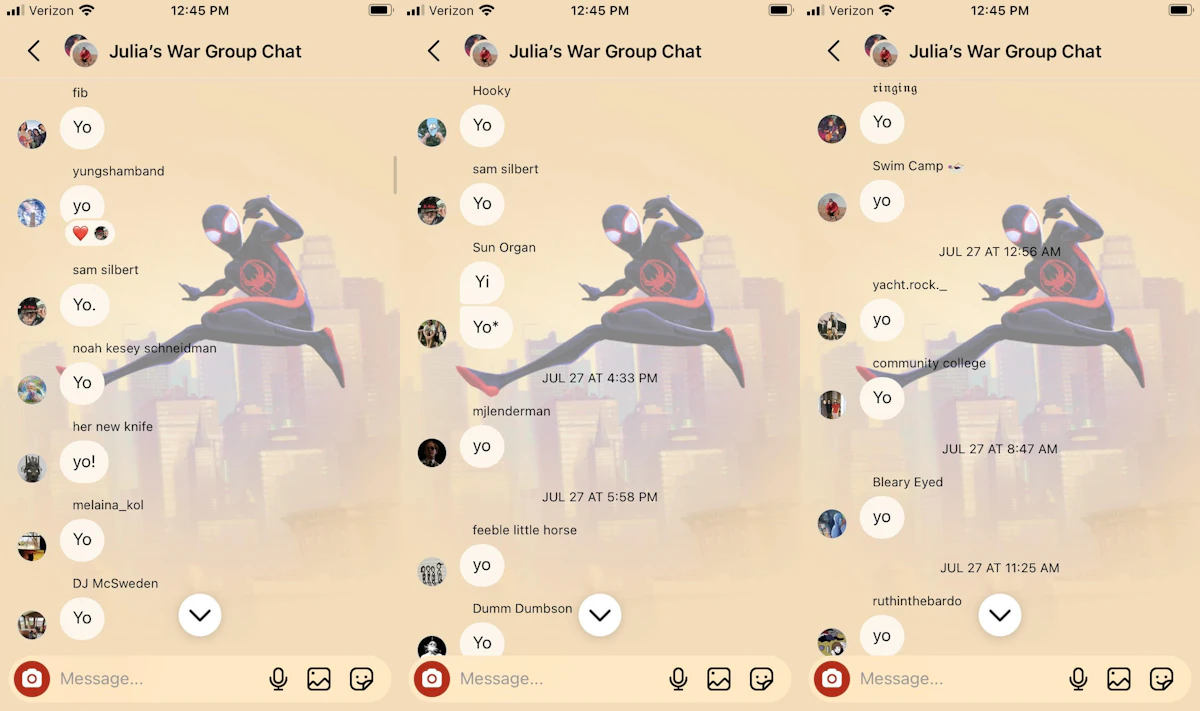There is a demo of “Julia”—John Lennon’s tribute to his mom and Yoko Ono—in which Lennon opens the song in Kahlil Gibran’s couplet, calls, “Ju–” and goes silent, allowing amplitude to filter in and out of each guitar pull, a face shifting in and out of focus.
If you play that version and stare long enough at the rough sketch of a woman that makes the Julia’s War Recordings emblem, you can almost hear her singing.
“That song always just floored me. It’s so special, melancholy, and beautiful in this way that only music can be,” says Douglas Dulgarian, frontman of They Are Gutting A Body of Water and the head of Philly-based independent label Julia’s War. “We all have a natural mother. We all come from that divine feminine. It’s comforting. Music feels like that to me.”
As Douglas sees it, there’s a kinship between the anti-cool, all-are-welcome mentality of the British pop band that inspires the alternative scene in the city of today. Julia’s War was born, in part, from the ‘new normal’ brought about by the COVID-19 pandemic, dating back to early 2020 when Douglas took the opportunity presented by a “scientist friend who made pretty good money” to start curating bands and putting out tapes for the small fee of $200/month. When his stimulus checks started rolling in, he opted to buy his friend out and take the label into his own hands as a resource for up-and-coming musicians.
In a music landscape that places crushing responsibility on independent artists to create, market, and network through the ever-growing network of streaming platforms and social media, Julia’s War welcomes the relative obscurity of its artists, extending Julia’s proverbial hand to all who choose to take it.
“Anybody can pick up a fucking laptop or an iPad or a Mac or whatever and start making music,” says Douglas of today’s digital-DIY space. “You could take anything from Spotify and put it onto your fucking sampler and that's it. That's yours now. You know what I mean? There's no ownership.”
At Julia’s War, there are no execs, no commission cuts, and no contracts (outside the occasional spit-shake). Bands join when they want to, leave when they want to, and if they go on to bigger things, they always have Julia’s War to cheer them on. The label does not have a hand in streaming profits; their focus is on the physical: producing and distributing tapes, SD cards, vinyls, and t-shirts for bands. They essentially focus on merchandising, a central advocacy point in the current movement of United Musicians and Allied Workers (UMAW).
Philly’s relationship with shoegaze already runs deep; As Eli Enis noted in a recent examination of the genre’s new wave, it’s both the “world capital” for the current revival, and it’s home to the 2010s standard-bearer, Nothing, a band that built a passionate cult following combining their hardcore roots with the genre’s wall-of-sound dynamics. Locally, they’ve given way to groups such as Blue Smiley and Knifeplay, and have at times counted Aaron Heard of Jesus Piece and Kyle Kimball of Night Sins as members. This the band is hosting a festival oriented around the history of the genre in March; the Swirlies are headlining, and TAGABOW is playing too.
TAGABOW and Wednesday, an indie rock band that has since signed with Dead Oceans, sit at the higher end of the spectrum with around a million streams on their highest-performing songs, while newer acts sometimes barely scratch 1,000. But while the new class of shoegaze artists earn millions of streams, that measure of success is not really the goal of Julia’s War, and one could argue, as Douglas often does, that Julia’s War is not a shoegaze label. Therein may lie the secret of its outsider status. Today’s music industry, which uses genre as a product to sell listeners in its ever-growing algorithm, is quick to catch nostalgic sounds in its stream, and package them to listeners as ‘subculture.’
But Julia’s War’s futuristic iterations of shoegaze, indie-rock, and alternative metal stay intact, perhaps because of their discordance with the genre identifiers as a prescriptive sound. Though many of its acts employ reverbed melodies and scratchy guitar, EDM, happy hardcore, and breakbeat drums make their way to the surface (just as acid house informed shoegaze innovators gone by).

